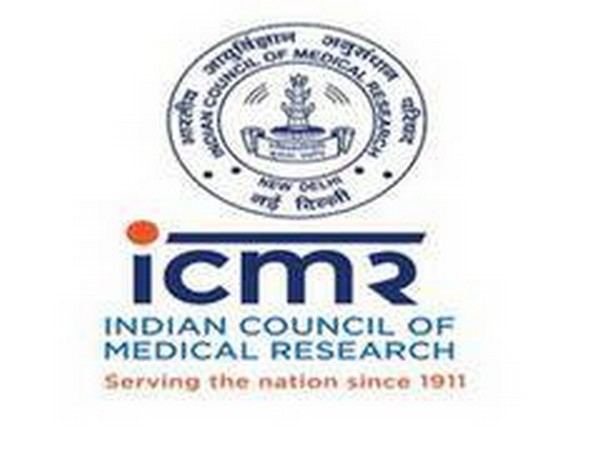Rapid antigen tests comprise 25 to 30 per cent of India’s total daily COVID-19 tests: DG-ICMR
Regarding the number of asymptomatic people and what percentage they comprise of, Bhargava, referring to a paper published in the Indian Journal of Medical, said it ranges between 20 to 28 per cent. "Our advisory is clearly saying that if they are symptomatic, then the RT-PCR test would be positive and the chances of antigen test being positive are very high.

- Country:
- India
Rapid antigen tests comprise nearly 25-30 per cent of the total daily tests conducted for the detection of COVID-19 in the country at present, ICMR Director General Balram Bhargava said on Tuesday. A record 6,61,892 samples were tested for COVID-19 on Monday, taking the total number of tests conducted so far in the country to 2,08,64,750 and the Tests per Million (TPM) to 15,119.
Of the total 2.08 crore tests conducted so far, around 26.5 lakh are antigen tests, an ICMR official said. Bhargava said at a press briefing that a rapid antigen detection test has a very high specificity (ability to detect true negatives) of 99.3 per cent to 100 per cent, however, their sensitivity is moderate ranging between 55 to 85 per cent.
"And, that is why, we have reiterated in our advisory that if a person is symptomatic and the rapid antigen test results are negative, it should be followed by RT-PCR tests to confirm the diagnosis. “When started, antigen tests comprised about 5-6 per cent of the total tests being conducted in a day, but this proportion is consistently rising now,” he said.
Bhargava said of the 11 companies which had approached for validation of their testing kits, three have been approved till now. On chances of asymptomatic cases getting missed out in the current testing protocol, he said after the virus enters the body, it takes about five days for the person to manifest symptoms of fever.
"Once I get the fever, we expect the test will be positive whether it is by antigen test or RT-PCR test, so both are similar from that perspective of finding a positive case. From 0-5 days, one may not have any symptoms and at that point of time, even the RT-PCR and antigen tests may be negative," he said. Regarding the number of asymptomatic people and what percentage they comprise of, Bhargava, referring to a paper published in the Indian Journal of Medical, said it ranges between 20 to 28 per cent.
"Our advisory is clearly saying that if they are symptomatic, then the RT-PCR test would be positive and the chances of antigen test being positive are very high. If the antigen test is negative in an asymptomatic person, RT-PCR may also be negative in a large percentage. So you need to look for symptoms and if a person develops symptoms, a repeat RT-PCT test may be done,” he added. Twenty-four states and UTs, including Rajasthan (17,398), Maharashtra (18,138), Karnataka (21,957), Tamil Nadu (35,439) and Delhi (57,855) are doing better in terms of conducting tests per million than the national average of 15,119, Union health secretary Rajesh Bhushan said.
A total of 28 states and UTs are conducting more than 140 COVID-19 tests per day per million population as prescribed by WHO. India is conducting 479 tests per day per million population for the detection of the disease, he said. He said 28 states and UTs have a COVID-19 positivity rate of less than 10 per cent, while India's positivity rate as on date is 8.89 per cent.
Rajasthan (2.89 per cent), Uttar Pradesh (4.04 per cent), Madhya Pradesh (4.36 per cent), Andhra Pradesh (8.65 per cent) and West Bengal (9.11 per cent) have a positivity rate of less than 10 per cent, he added.
(This story has not been edited by Devdiscourse staff and is auto-generated from a syndicated feed.)
ALSO READ
West Bengal: Scuffle between TMC, BJP workers during Dilip Ghosh's visit to Durgapur
Uttar Pradesh: Former DGP Vijay Kumar Singh joins BJP ahead of Lok Sabha polls
Madhya Pradesh woman gang-raped in Rajasthan's Kota, seven accused arrested
Create AI commission for Uttar Pradesh: BJP MLA to CM Adityanath
IHLD collaborates with Krafton India to identify active tuberculosis cases in Uttar Pradesh and Uttarakhand










